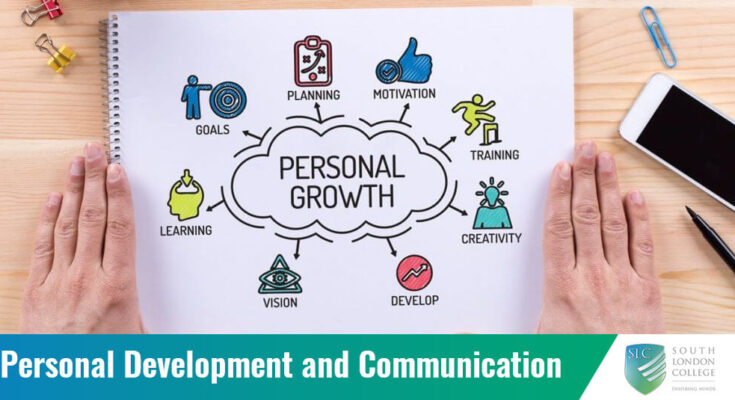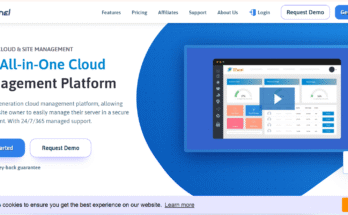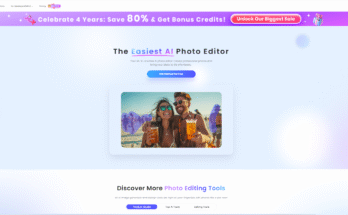Personal development is the continuous process of improving oneself, both personally and professionally, to achieve one’s full potential. It requires self-awareness, determination, and a willingness to adapt. By focusing on key areas, individuals can enhance their skills, mindset, and well-being, which positively impacts all aspects of life. Below are some critical areas to focus on for personal development:
https://platform.shoffi.app/r/rl_IWSv1t5P
1. Self-Awareness
Self-awareness is the foundation of personal growth. It involves understanding your emotions, values, strengths, weaknesses, and behaviors. When you are self-aware, you can assess your progress, recognize areas needing improvement, and make decisions aligned with your personal goals. To improve self-awareness:
- Reflect regularly through journaling or meditation.
- Seek feedback from trusted individuals.
- Engage in activities that push your comfort zone and reveal your true character.
https://platform.shoffi.app/r/rl_IWSv1t5P
2. Emotional Intelligence (EQ)
Emotional intelligence is the ability to understand and manage your own emotions and recognize and influence the emotions of others. It is critical for building healthy relationships, both in personal and professional contexts. EQ includes skills like empathy, self-regulation, motivation, and social skills. You can build emotional intelligence by:
- Practicing empathy and active listening.
- Managing stress and developing emotional resilience.
- Cultivating healthier relationships by understanding emotions.
https://platform.shoffi.app/r/rl_IWSv1t5P
3. Time Management
Time management is crucial for maximizing productivity and maintaining balance in life. It helps in prioritizing tasks, setting realistic goals, and avoiding procrastination. Effective time management reduces stress and increases efficiency, allowing you to accomplish more in less time. To develop better time management skills:
- Prioritize tasks using tools like to-do lists or time-blocking techniques.
- Break down larger projects into smaller, manageable tasks.
- Avoid distractions and focus on single tasks at a time.
https://platform.shoffi.app/r/rl_o4CxvCLz
4. Continuous Learning
Personal growth is closely tied to continuous learning. In a rapidly evolving world, knowledge and skills quickly become outdated, so it’s essential to cultivate a habit of lifelong learning. Whether learning new skills, staying updated with industry trends, or pursuing personal interests, continuous learning ensures that you remain adaptable and competitive. To foster a learning mindset:
- Read regularly, both for professional and personal growth.
- Take online courses, attend workshops, or participate in seminars.
- Stay curious and open to new experiences.
https://platform.shoffi.app/r/rl_o4CxvCLz
5. Health and Wellness
Physical and mental well-being are integral to personal development. A healthy body and mind enable you to function at your best, maintain focus, and pursue your goals with energy and vitality. Neglecting health can lead to burnout, decreased productivity, and dissatisfaction. To improve in this area:
- Adopt regular exercise routines that suit your lifestyle.
- Maintain a balanced diet and stay hydrated.
- Prioritize sleep and manage stress through relaxation techniques like mindfulness or yoga.
6. Financial Literacy
Financial stability is essential for peace of mind and long-term security. Developing financial literacy helps you manage your money effectively, make sound investments, and prepare for future challenges. Understanding financial principles like budgeting, saving, and investing is key to personal and professional success. To improve your financial literacy:
- Create a personal budget and stick to it.
- Learn about savings, investments, and managing debt.
- Seek financial advice or read materials on financial management.
7. Communication Skills
Effective communication is critical in both personal and professional settings. Whether it’s public speaking, written communication, or interpersonal skills, being able to express yourself clearly and listen actively is vital for building strong relationships and achieving success. To develop communication skills:
- Practice public speaking and engage in discussions.
- Learn active listening and non-verbal communication.
- Work on clear and concise writing.
https://platform.shoffi.app/r/rl_o4CxvCLz
8. Goal Setting
Goal setting is the roadmap for personal development. Setting clear, realistic goals allows you to measure progress and stay motivated. It’s essential to have short-term and long-term goals that align with your personal values and vision for your life. To improve your goal-setting process:
- Use the SMART (Specific, Measurable, Achievable, Relevant, Time-bound) framework.
- Review and adjust your goals regularly.
- Break down long-term goals into manageable steps.
9. Mindset Development
A growth mindset, as opposed to a fixed mindset, is crucial for personal development. It involves believing that abilities and intelligence can be developed through effort, learning, and persistence. Those with a growth mindset are more likely to embrace challenges, learn from feedback, and persevere through difficulties. To cultivate a growth mindset:
- View challenges as opportunities to learn.
- Celebrate progress, not just achievements.
- Learn from mistakes and criticism.
10. Resilience and Adaptability
Life is full of challenges, and resilience is key to overcoming setbacks. Personal development includes building mental and emotional toughness, so you can adapt to changes and recover from difficulties without losing focus on your goals. Developing resilience and adaptability can be achieved by:
- Building a positive mindset that embraces change.
- Practicing stress management techniques.
- Learning from failures and setbacks.
Conclusion
Personal development is a lifelong journey, requiring deliberate effort and continuous growth. By focusing on areas such as self-awareness, emotional intelligence, time management, learning, health, communication, and resilience, individuals can enhance their lives and achieve greater success in both personal and professional realms. Remember, progress in personal development comes through consistent practice and reflection, leading to long-term fulfillment and achievement.





GpEkXjdc tvki SfPsNi qszZU xcubJL JVNbgHRB
A code promo 1xBet est un moyen populaire pour les parieurs d’obtenir des bonus exclusifs sur la plateforme de paris en ligne 1xBet. Ces codes promotionnels offrent divers avantages tels que des bonus de dépôt, des paris gratuits, et des réductions spéciales pour les nouveaux joueurs ainsi que les utilisateurs réguliers.code promo 1xbet brazzaville
Thanks for sharing. I read many of your blog posts, cool, your blog is very good.
Thanks for sharing. I read many of your blog posts, cool, your blog is very good.
I don’t think the title of your article matches the content lol. Just kidding, mainly because I had some doubts after reading the article.
I don’t think the title of your article matches the content lol. Just kidding, mainly because I had some doubts after reading the article.
Thanks for sharing. I read many of your blog posts, cool, your blog is very good. https://www.binance.info/ru/register?ref=V3MG69RO
Can you be more specific about the content of your article? After reading it, I still have some doubts. Hope you can help me.
Your point of view caught my eye and was very interesting. Thanks. I have a question for you.
The point of view of your article has taught me a lot, and I already know how to improve the paper on gate.oi, thank you. https://www.binance.info/register?ref=P9L9FQKY
Can you be more specific about the content of your article? After reading it, I still have some doubts. Hope you can help me.
**mindvault**
mindvault is a premium cognitive support formula created for adults 45+. It’s thoughtfully designed to help maintain clear thinking